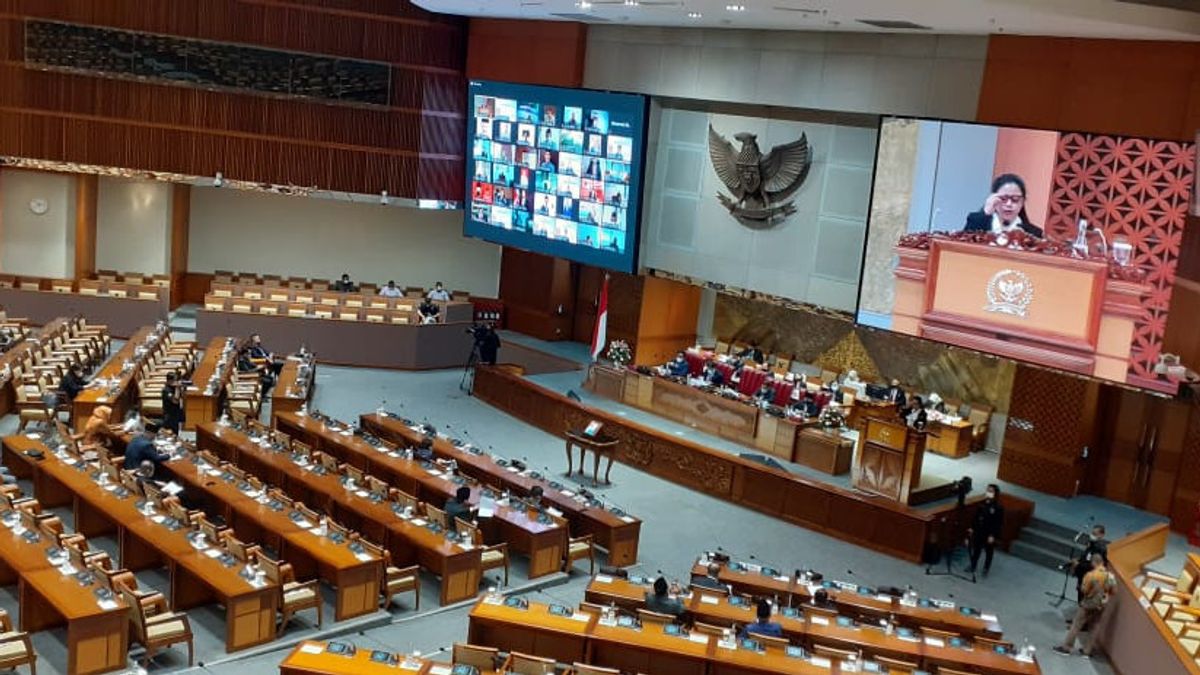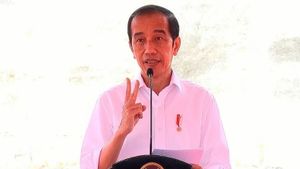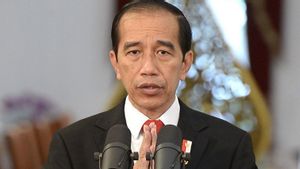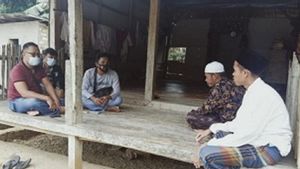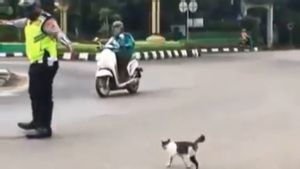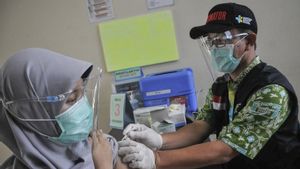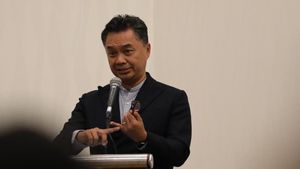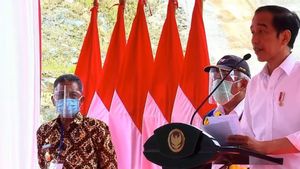JAKARTA - The government is considered to have violated an agreement with the House of Representatives (DPR) regarding sanctions for people who refuse the COVID-19 vaccine. Sanctions against the COVID-19 vaccine are contained in Presidential Decree No. 14 Year 2021.
Chairman of Commission IX DPR, Felly Estelita Runtuwene said in a working meeting with the government it was agreed that sanctions were not prioritized for people who did not carry out the COVID-19 vaccination.
In the brief report on the work meeting between the DPR Commission IX and the Ministry of Health, BPOM, BPJS Health, at point 1 paragraph g it is explicitly written, namely:
"Not prioritizing provisions and/or regulations for fines and/or penalties for receiving the COVID-19 vaccine."
That way, said Felly, the government had violated the agreement in Presidential Decree No. 14/2021. Because, if you reflect on the conclusion of the meeting, the existence of Presidential Decree No. 14/2021 is already contradicting.
"The point is that the government has violated its agreement with Commission IX of the DPR. The government has violated it because the agreement is binding on both parties, the government, and the DPR. What is the point of a meeting if there is no legitimacy," she said, in Jakarta, Sunday, February 14.
With the issuance of Presidential Decree Number 14 Year 2021 concerning the procurement of vaccines and implementation of vaccinations in the context of tackling the COVID-19 pandemic, according to Felly, apart from contradicting the agreement of the Commission IX Meeting with the government dated January 14, 2021, it also violates the DPR RI Rules of Procedure No.1 of 2020 Article 61.
Article 61 of the DPR Standing Orders reads:
"Decisions and/or conclusions of commission work meetings or joint commission work meetings are binding between the DPR and the government and must be implemented by the government."
Felly said that any form of fines or penalties was against WHO recommendations. In fact, the recommendation of the World Health Organization (WHO) emphasizes socialization to the public through social public advertisements, direct socialization from health workers (Nakes) to the community, as well as various other forms of socialization so that positive messages reach the community. So that bad perceptions related to the COVID-19 vaccine can be handled by this socialization.
"But what the government is doing is the opposite. If we threaten them, the public may even become increasingly antipathic. The DPR Commission IX basically asks the government to carry out a campaign for those who are vaccinated, to explain in as much detail as possible about the benefits of vaccines to the public," she said.
SEE ALSO:
Felly also asked the government to explain if people are reluctant to be vaccinated, what kind of harm will it be, and if they are vaccinated, what are the benefits. Not the opposite with threats.
"The threat of sanctions is not appropriate. For us, this violates our rights as well. It cannot be like this," she said.
The NasDem politician asked the government to be wise in issuing a policy when responding to the public when they refused to be vaccinated. Not only that, but she also asked that the socialization that has been carried out needs to be evaluated again. Because the vaccine campaign may not be appropriate.
In addition, Felly also reminded the government about the task of fighting hoaxes that spread in the community, especially regarding vaccines and vaccinations.
"It could be that hoaxes are reported more than official government news. Now, this needs to be addressed by the government. But don't rush into making a decision with such a sanction. Commission IX of the DPR does not agree," she explained.
The English, Chinese, Japanese, Arabic, and French versions are automatically generated by the AI. So there may still be inaccuracies in translating, please always see Indonesian as our main language. (system supported by DigitalSiber.id)
